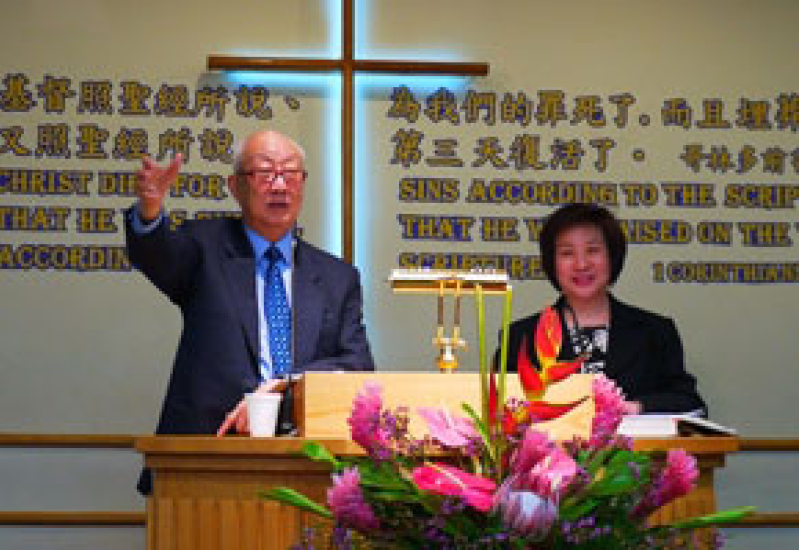
Some Christians have claimed that justification through faith is the same as salvation, but a highly respected Chinese theologian and preacher explained that the salvation is only complete with both justification through faith and sanctification.
Rev. Dr. Hay-Chun Maak, honorary chairman of Chinese Coordination Center of World Evangelism (CCCOWE), taught the salvation of Jesus in two stages, referencing Romans 3-8 as source at the Bible-study conference “The Source of Complete Devotion” held at the Oversea Chinese Mission Boon Church.
Maak pointed out that it is a misunderstanding to say that justification through faith is the same as salvation, but the more accurate explanation is that sanctification is the continuation of justification through faith, for both are equally important parts of salvation.
Then, the former president of Singapore Bible College explicated on the complete meaning of justification through faith and sanctification, and then used metaphors to explain the relationship between the two principles.
First, justification through faith (Romans 3-5) refers to God calling sinners as righteous through faith in Jesus Christ. Those declared as righteous in justification through faith isn’t really a righteous person, but is only called righteous.
Comparing a righteous person in justification through faith to a spiritual infant, the preacher, who is in his eighties, said although an infant is a fully living person right after birth, the baby hasn’t mature yet, for he/she cannot run, walk, jump, read, work…so although infant and a grown man are both consider as man, there is a still a very big difference between the two.
In comparison, sanctification (Romans 6-8) means that a sinner after believing in Jesus Christ grows and becomes a truly complete righteous man. Maak emphasizes that the righteous man after going through sanctification is no longer a spiritual infant but a spiritual adult, a truly righteous person.
Just as a healthy child will eventually grow to become an adult, a person saved by grace will experience the process of justification through faith and sanctification. If one’s faith only remains at the level of justification through faith, then his/her life will remain immature, thereby having little or no spiritual influence in the church and the community.
Therefore, salvation without sanctification is incomplete, so church must not neglect teaching sanctification, exhorted Maak.
[Editor's note: reporter Luke Leung translated the article.]





![[Exclusive Interview] A revelation within the brink of life and death — Meg Leung’s mission in Christian art](https://www.gospelherald.com/media/cache/thumbnail/7/21/72163sp_273w_150h_1x_1y.jpg)

